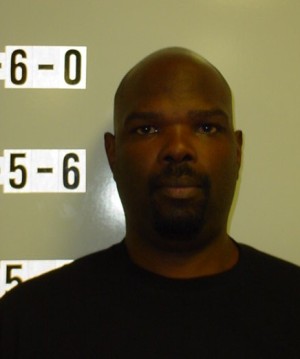- Elizabeth Larson
- Posted On
Seeking redress: Disenrolled Indians have few options
NICE – As tribal disenrollments escalate among tribes in California and the rest of the nation, many Indians facing the loss of their tribal membership and identity are struggling to find justice.
The fear of what may happen if they are stricken from the tribe's rolls is dominating the lives of between 60 and 74 current members of the Robinson Rancheria Band of Pomos, who were notified late last month that they are up for disenrollment.
John Gomez, president of the American Indian Rights and Resources Organization (AIRRO), said there's no real way for disenrolled Indians to seek redress. Gomez himself was disenrolled from the Pechanga tribe.
Because tribes invoke sovereign immunity, and because the Indian Civil Rights Act doesn't involve a course of redress for violations of those civil rights, the courts don't take action even though they acknowledge that the disenrollment actions are highly suspect if not illegal, said Gomez.
A 1978, the US Supreme Court's decision in Santa Clara Pueblo v. Martinez, set an important legal precedent for how the US government and the courts deal with matters of tribal enrollment, said Gomez.
In that case, a female member of the Santa Clara Pueblo and her daughter argued that a Pueblo ordinance that denied tribal membership to children of female members who marry outside the tribe violated the Indian Civil Rights Act of 1968, because it did not treat the children of male members who married out of the tribe in the same way.
District and appellate courts found for the petitioners, but the Supreme Court reversed the decision.
Writing the majority opinion, Justice Thurgood Marshall noted that “Congress' authority over Indian matters is extraordinarily broad, and the role of courts in adjusting relations between and among tribes and their members correspondingly restrained.” The court held that tribal sovereignty protected them from being sued in civil actions for declaratory or injunctive relief.
Marshall quoted the Indian Civil Rights Act's chief sponsor, Sen. Sam Ervin, who said the 1967 bill “should not be considered as the final solution to the many serious constitutional problems confronting the American Indian.”
Justice Byron White dissented, saying the act was meant to insure that Indians had the same broad constitutional rights as other Americans.
“Given Congress' concern about the deprivations of Indian rights by tribal authorities, I cannot believe, as does the majority, that it desired the enforcement of these rights to be left up to the very tribal authorities alleged to have violated them,” White wrote.
Because of that decision, Gomez said the government, and particularly the Bureau of Indian Affairs – which manages relationships with 562 Indian tribes – tends to defer to tribal councils in what it considers internal matters.
“There's just nothing that we can do to step in,” concedes Bureau of Indian Affairs Deputy Regional Director Dale Risling. “It has to be resolved internally.”
Ideally, the issues can be resolved if tribes have courts or internal review processes, Risling said.
The BIA also is taking a hands-off approach to an election dispute within the tribe. EJ Crandell won the vice chair seat in a June 14 election, which was decertified by an election committee dominated by his rival for the seat, current Tribal Chair Tracey Avila.
Crandell and tribal members up for disenrollment say the action is in retaliation for his election.
A new election date, set for next month, will see Avila running for her seat unopposed, since the election committee ruled Crandell is ineligible to run on what he asserts is a trumped up technicality.
Superintendent Troy Burdick of the BIA's Central California Agency wrote Crandell a letter last month in which he said that, while the tribal council's decision to reschedule an election was “unusual” and not fully in compliance with the tribe's election laws, “it is not the Bureau's place to interfere in this process or to take a recognition action at this time that would disrupt a tribal process.”
Constitutional process gives Robinson members hope for justice
Still, in the matter of Robinson's disenrollment, the BIA may be able to intervene.
Last week the BIA did just that in a dispute involving the San Pasqual Band of Mission Indians in San Diego County.
The BIA told the tribe they couldn't disenroll about 60 members whose ancestry was disputed, according to press reports. However, the agency said the tribe could appeal the decision.
In that case, the BIA could intervene because San Pasqual's constitution gives the BIA oversight in such
membership decisions.
Gomez, said that's because most tribes' constitutions don't include such language providing for oversight. “It doesn't happen as a matter of course.”
The San Pasquale development could have important implications for Robinson Rancheria, whose constitution – ratified in 1980 – has a provision to allow the BIA to hear rule on disenrollment appeals.
“In this particular situation, according to their laws, their constitution and enrollment ordinance, the BIA will become involved in a disenrollment appeal,” said Risling.
Robinson members who are disenrolled can appeal to the BIA, which will then make a determination. “That's not the case with most tribes,” Risling said.
The tribe's constitution sets up an appeals process, Risling explained. The appeal would have to be made through Burdick's office, which would prepare an administrative recommendation. If his decision was appealed it would go to Risling.
BIA hasn't done a full review of the case, yet, Risling added.
The agency would have to review a number of membership rolls that were passed, said Risling.
“We would act as fast as we could because these are really imp issues,” he said, adding it would be hard to give a timeline. “It depends on the circumstances.”
He said he didn't think the disenrollment action would be stayed while they're reviewing the appeal, meaning members would lose financial and other services. Any payments or services withheld would be an issue for separate agencies such as the National Indian Gaming Commission and state health services officials.
So are people who are disenrolled from their tribes no longer Indian?
Risling said no. “They would certainly be considered Indian.”
However, not being a member of a federally recognized tribe means they are no longer eligible for many services and programs, he said.
In California, descendants from the state's judgment roles make people eligible for Indian health services. That provision is due to many tribes being terminated in the 1950s and 1960s.
Some members up for disenrollment are considering the possibility of forming their own tribe. But Risling said that can be an extremely complicated and difficult matter involving a federal acknowledgment process.
That process requires applying tribes to show longterm existence, and cultural and historical ties to an area.
“I'm not saying that it can't be done,” said Risling, but with another, larger tribe already there, the difficulties are manifest.
Lake County News will continue to follow the Robinson Rancheria disenrollment situation and provide updates on as soon as they are available.
E-mail Elizabeth Larson at This email address is being protected from spambots. You need JavaScript enabled to view it..
{mos_sb_discussion:2}

 How to resolve AdBlock issue?
How to resolve AdBlock issue? 









